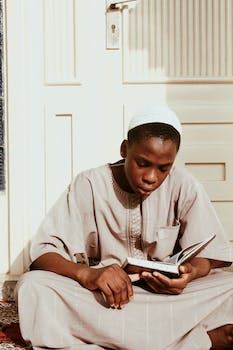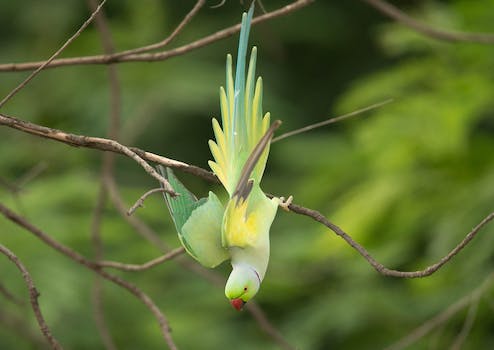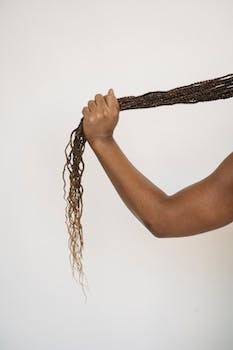-
Table of Contents
“The Purrfect Harmony: Celebrating the Divine Bond Between Islam and Cats”
Introduction
The divine bond between Islam and cats is a topic that holds great significance in Islamic culture and history. Cats are highly regarded and respected animals in Islam, with numerous references to their importance found in religious texts and teachings. This bond is rooted in the Prophet Muhammad’s love and admiration for cats, as well as the many stories and traditions that highlight their special place in Islamic society.
The Symbolic Significance of Cats in Islamic Culture
The Symbolic Significance of Cats in Islamic Culture
Cats have long held a special place in Islamic culture, with their presence being highly regarded and celebrated. This deep connection between Islam and cats can be traced back to the time of the Prophet Muhammad, who had a profound love and respect for these graceful creatures. The symbolic significance of cats in Islamic culture is multifaceted, encompassing notions of purity, cleanliness, and spirituality.
In Islamic tradition, cats are considered to be clean animals, and their presence is believed to bring blessings to a household. This belief stems from a hadith, a saying of the Prophet Muhammad, which states that cats are not impure and can freely roam around the house without affecting its cleanliness. This notion of cleanliness is deeply ingrained in Islamic culture, and cats are seen as a symbol of purity and innocence.
Furthermore, cats are also associated with spirituality in Islamic culture. They are believed to possess a special connection to the divine, and their presence is thought to bring about a sense of tranquility and peace. This belief is rooted in the story of the Prophet Muhammad’s fondness for cats. It is said that he once cut off the sleeve of his robe rather than disturb a cat that was sleeping on it. This act of compassion and respect towards a cat exemplifies the importance of kindness and empathy towards all living beings in Islamic teachings.
The symbolism of cats in Islamic culture extends beyond their association with purity and spirituality. Cats are also seen as protectors and guardians. It is believed that they have the ability to ward off evil spirits and bring good fortune to those who treat them with kindness. This belief is reflected in the numerous stories and legends that have been passed down through generations, highlighting the protective nature of cats.
In addition to their symbolic significance, cats also play a practical role in Islamic culture. They are often kept as pets in households, providing companionship and joy to their owners. Cats are known for their independent and self-sufficient nature, making them ideal companions for those who lead busy lives. Their presence in a household is believed to bring about a sense of harmony and contentment.
The deep bond between Islam and cats is further exemplified by the existence of cat sanctuaries and mosques that provide shelter and care for stray cats. These sanctuaries serve as a testament to the importance of compassion and care towards animals in Islamic teachings. They also serve as a reminder of the special place that cats hold in Islamic culture.
In conclusion, the symbolic significance of cats in Islamic culture is profound and multifaceted. Cats are seen as symbols of purity, spirituality, and protection. Their presence is believed to bring blessings and tranquility to a household. The deep bond between Islam and cats is rooted in the teachings of the Prophet Muhammad, who exemplified kindness and compassion towards these graceful creatures. The existence of cat sanctuaries and mosques dedicated to the care of stray cats further highlights the importance of treating animals with respect and care in Islamic culture.
Cats in Islamic History: Legends and Stories

Cats have played a significant role in Islamic history, with legends and stories highlighting the divine bond between Islam and these graceful creatures. From the time of the Prophet Muhammad to the present day, cats have been revered and cherished by Muslims around the world.
One of the most famous stories involving cats in Islamic history is the tale of Muezza, the Prophet Muhammad’s beloved cat. According to legend, Muezza was a gift from Allah himself, and the Prophet had a deep affection for him. It is said that when the Prophet Muhammad was called to prayer, Muezza was sleeping on the sleeve of his robe. Rather than disturbing his feline companion, the Prophet cut off the sleeve of his robe, allowing Muezza to continue sleeping undisturbed. This act of kindness and respect towards a cat has become a symbol of the compassion and mercy that Islam teaches its followers.
Another story that showcases the importance of cats in Islamic history is the tale of Abu Hurairah, one of the Prophet Muhammad’s companions. Abu Hurairah was given this name, which means “father of kittens,” because of his love and care for cats. It is said that he would often carry a kitten in his sleeve, and he would go to great lengths to ensure their well-being. Abu Hurairah’s love for cats was so well-known that people would bring him stray cats, knowing that he would provide them with food, shelter, and love. This story serves as a reminder of the importance of kindness and compassion towards all creatures, no matter how small or insignificant they may seem.
Cats are also mentioned in the Quran, the holy book of Islam. In one verse, it is stated that “Allah has created every moving creature from water. Of them are some that creep on their bellies, some that walk on two legs, and some that walk on four. Allah creates what He wills. Indeed, Allah is over all things competent” (Quran 24:45). This verse emphasizes the diversity of Allah’s creation and highlights the significance of all living beings, including cats.
In addition to these legends and stories, cats have also played a practical role in Islamic history. During the time of the Prophet Muhammad, cats were highly valued for their ability to keep homes and mosques free from rodents and pests. Their presence was seen as a blessing, as they helped maintain cleanliness and hygiene in these sacred spaces. Even today, many Muslims consider it a good omen to have a cat in their home, believing that their presence brings blessings and protection.
The divine bond between Islam and cats is a testament to the teachings of compassion, mercy, and respect for all living beings that are central to the Islamic faith. Cats have been revered and cherished throughout Islamic history, with legends and stories highlighting their importance. From the Prophet Muhammad’s love for his cat Muezza to Abu Hurairah’s care for stray cats, these stories serve as reminders of the kindness and compassion that Muslims are encouraged to show towards all creatures. Whether through practical benefits or symbolic significance, cats continue to hold a special place in the hearts of Muslims around the world.
The Role of Cats in Islamic Rituals and Practices
The role of cats in Islamic rituals and practices is a fascinating aspect of the religion. Cats hold a special place in Islamic culture, and their presence is deeply intertwined with the faith. From their association with the Prophet Muhammad to their significance in daily prayers, cats are revered and respected by Muslims around the world.
One of the most well-known stories involving cats in Islam is the tale of the Prophet Muhammad and his love for felines. It is said that the Prophet had a deep affection for cats and treated them with kindness and compassion. There are numerous accounts of the Prophet allowing cats to rest on his lap while he prayed or delivering sermons. This love for cats has been passed down through generations of Muslims, and many consider it a blessing to have a cat in their home.
In addition to their association with the Prophet Muhammad, cats also play a role in Islamic rituals. One such ritual is the ritual purification, or wudu, which Muslims perform before prayer. According to Islamic tradition, if a cat licks a person’s hand or face, it does not invalidate their wudu. This is because cats are considered clean animals in Islam, and their saliva is not considered impure. This exemption for cats is unique and highlights the special status they hold in the religion.
Furthermore, cats are also believed to bring blessings to a household. It is believed that having a cat in the home can ward off evil spirits and bring good fortune. This belief is deeply rooted in Islamic culture, and many Muslims consider cats to be a source of protection and blessings. As a result, it is not uncommon to find cats in mosques or Islamic centers, where they are welcomed and cared for by the community.
Cats also have a role to play during the Islamic holiday of Eid al-Adha, also known as the Festival of Sacrifice. During this holiday, Muslims commemorate the willingness of Ibrahim (Abraham) to sacrifice his son as an act of obedience to God. As part of the celebration, Muslims sacrifice an animal, usually a sheep or a goat, and distribute the meat to the needy. However, it is recommended to feed a cat before consuming the meat oneself. This act of kindness towards cats is seen as a way to honor their special status in Islam.
In conclusion, the role of cats in Islamic rituals and practices is deeply rooted in the religion. From their association with the Prophet Muhammad to their significance in daily prayers, cats hold a special place in Islamic culture. They are considered clean animals and their presence is believed to bring blessings and protection. Whether it is their exemption from invalidating wudu or their role during the Festival of Sacrifice, cats are revered and respected by Muslims around the world. The divine bond between Islam and cats is a testament to the compassion and love that the religion promotes towards all creatures.
Q&A
1. What is the significance of cats in Islam?
Cats are highly regarded in Islam for their cleanliness and companionship. They are considered to be clean animals and are allowed to enter homes and mosques. Prophet Muhammad is said to have had a deep affection for cats and treated them with kindness and respect.
2. Are there any specific teachings or stories about cats in Islamic literature?
There are several teachings and stories about cats in Islamic literature. One well-known story tells of a cat saving Prophet Muhammad from a snake by killing it. This incident is believed to have reinforced the positive view of cats in Islam.
3. How are cats treated in Islamic culture?
Cats are treated with kindness and care in Islamic culture. Muslims are encouraged to provide food, water, and shelter to stray cats and to treat them with compassion. It is also recommended to avoid causing harm to cats and to refrain from cutting their fur or tails as it is considered cruel.
Conclusion
In conclusion, the divine bond between Islam and cats is deeply rooted in Islamic teachings and traditions. Cats are highly regarded and respected in Islamic culture, as they are believed to possess spiritual qualities and have been praised by the Prophet Muhammad. Their presence in Islamic households is considered a blessing, and their care and treatment are emphasized. This bond highlights the importance of compassion, kindness, and respect for all creatures in Islam.

